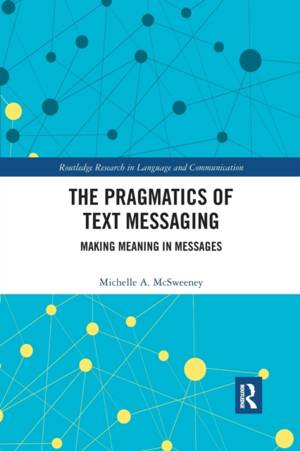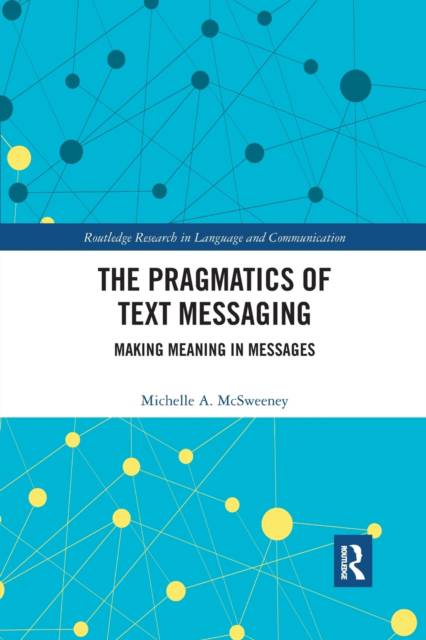
- Retrait gratuit dans votre magasin Club
- 7.000.000 titres dans notre catalogue
- Payer en toute sécurité
- Toujours un magasin près de chez vous
- Retrait gratuit dans votre magasin Club
- 7.000.0000 titres dans notre catalogue
- Payer en toute sécurité
- Toujours un magasin près de chez vous
Description
This book provides a comprehensive linguistic exploration of textism use by bilingual young adults, illustrating the function of alternative and creative linguistic features and their role in conveying tone through text. Drawing on a corpus of nearly 45,000 text messages donated by bilingual young adults in New York City, this volume explores the ways in which the use of texting features such as 'lol, ' emojis, abbreviations, and acronyms is systematic and essential.
In part, toward the aim of exposing the tensions bilinguals face navigating a platform that preferences monolingual language practices, the book highlights creativity as a means of both constructing meaning and performing identity for bilingual youths. These findings are extended to explore the role texting plays in communication and identity construction in contemporary society more generally. This volume extends the boundaries of emerging research on language and digital communication, and will be of particular interest to graduate students and scholars in computer-mediated communication, pragmatics, and new media.
Spécifications
Parties prenantes
- Auteur(s) :
- Editeur:
Contenu
- Nombre de pages :
- 192
- Langue:
- Anglais
- Collection :
Caractéristiques
- EAN:
- 9780367590123
- Date de parution :
- 14-08-20
- Format:
- Livre broché
- Format numérique:
- Trade paperback (VS)
- Dimensions :
- 152 mm x 229 mm
- Poids :
- 263 g

Les avis
Nous publions uniquement les avis qui respectent les conditions requises. Consultez nos conditions pour les avis.






